Over 50 criminal justice experts and practitioners from Europe and North America participated in an International Conference in Lisbon. The event discussed the progress and results of an initiative focusing on training justice professionals to achieve a comprehensive P/CVE strategy.
The offenders’ journey through the justice system, from accusation to release, is a process involving multiple agencies and information transfer points. When dealing with radicalised or vulnerable to radicalisation individuals, these transitions are even more significant.
The event highlighted the importance of multi-level training and successful risk screening and assessment for effective P/CVE efforts. The consortium shared the project’s main results and invited several key expert speakers to explore fundamental radicalisation prevention and countering topics.
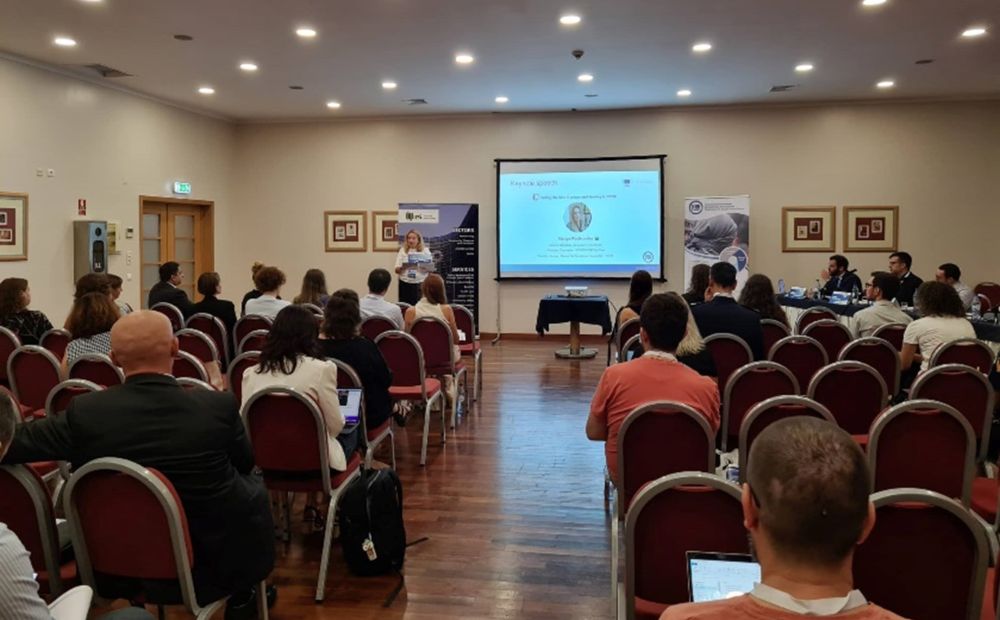
Pedro Liberado, Chief Researcher Officer at IPS_Innovative Prison Systems, briefly explored the project and the Radicalisation Risk Assessment in Prison (RRAP) instrument developed in the R2PRIS project. The battery of instruments consists of three tools, namely the FBOG (Frontline Behavioural Observational Guidelines), the HV (Helicopter View), and the IRS (Individual Risk Screening), aimed at frontline staff, prison administrators and technical staff, respectively.
Through these tools, practitioners can better work to prevent, identify and tackle radicalisation and violent extremism in a multi-level, cross-sectoral and joint effort between different professionals and agencies.
To become proficient in using these tools, tailored and comprehensive training was identified as a pressing need for different professionals within the criminal justice sector.
During the panel with presentations from Álvaro Vicente, researcher and Associate Professor at the Real Instituto Elcano in Spain, Ondřej Kolář, Professor at the Police Academy of Czech Republic, and Pedro Liberado, Chief Researcher Officer at IPS_Innovative Prison Systems, it became apparent how critical informed and grounded risk assessment procedures are. The prison staff training offers in Europe were also explored and discussed.
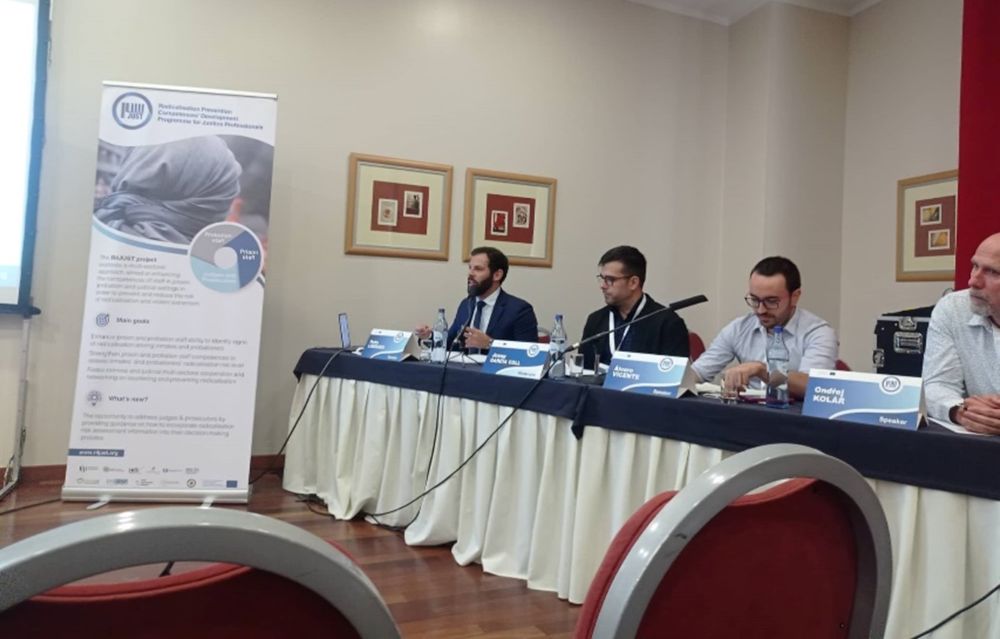
The training actions demonstrated significant positive results. Knowledge of radicalisation, P/CVE mechanisms, efforts, and risk assessment procedures increased considerably among the trainees, as shown in the data from the professionals’ evaluation.
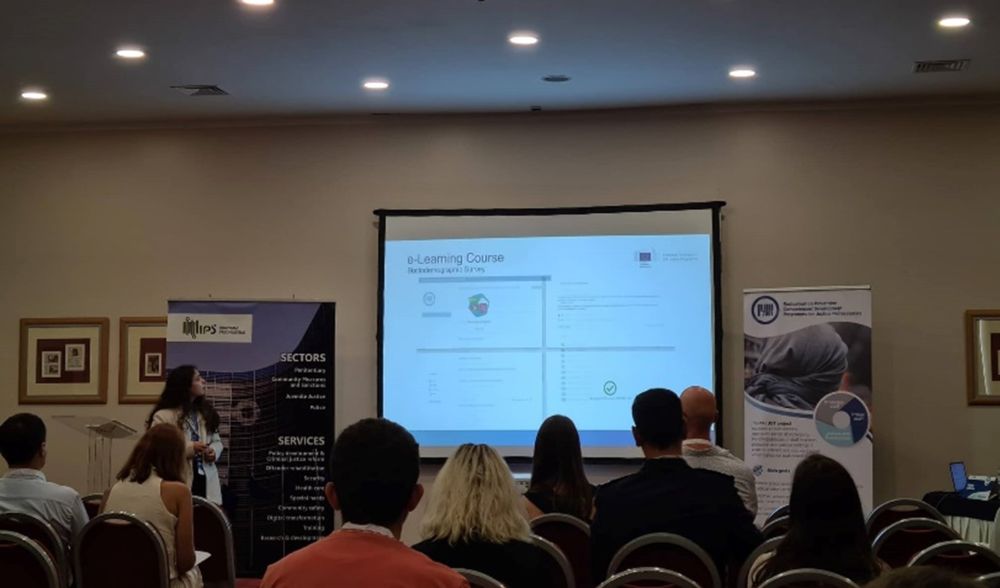
The expert speakers concluded that increased cooperation promotes a smoother transition from prison to the community, easing resettlement and reintegration processes hence promoting the prison-exit continuum.
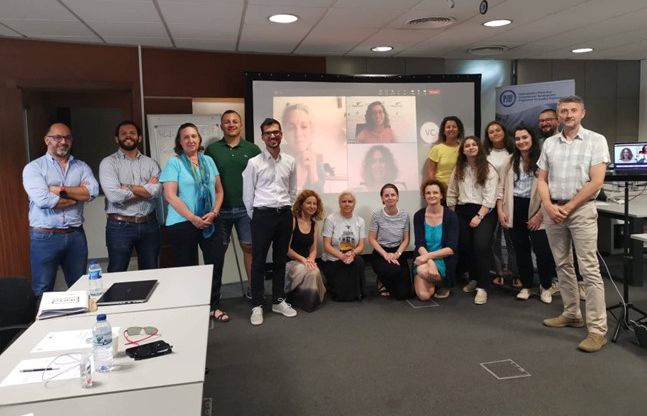
The R4JUST project will continue delivering the planned training courses and working to establish its achievements as a solid foundation to prevent and reduce the risk of radicalisation and violent extremism across justice systems.
Know more about this project

R4JUST
Radicalisation Prevention Competences’ Development Programme for Justice Professionals
R4JUST is led by BSAFE Lab – Law Enforcement, Justice and Public Safety Laboratory of Beira Interior University (Portugal), and partnered by IPS_Innovative Prison Systems (Portugal), Directorate-General for Reintegration and Prison Services (DGRSP/Portugal), College of Public Administration Bremen (Germany), Bremen Senate of Justice and Constitution (Germany), Agenfor International (Italy), the West University of Timisoara (Romania), Bucharest Jilava Penitentiary (Romania) and the ICPA Stichting Foundation office in Europe (The Netherlands). The project is funded by the Directorate-General for Justice and Consumers of the European Commission.
For more information about the R4JUST project, please visit: www.r4just.org
Related projects
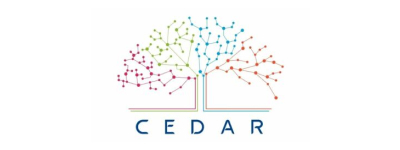
CEDAR
Continuing Education Against Radicalisation

COOPERHATE
Delivering a comprehensive approach to preventing, reporting, investigating and prosecuting hate crime and hate speech-related incidents in Portugal

DIGIDEM
Fostering Digital Democracy and Citizenship in Higher Education

EUTEx
Developing a European framework for disengagement and reintegration of extremist offenders and radicalised individuals in prison

FUTURE-ART
Sentinels of the Future: Together to Eradicate Human Trafficking

HOPE
Holistic Radicalisation Prevention Initiative (Balkan countries)

IN2PREV
Law enforcement and community cooperation and training approach to prevent radicalisation by ensuring refugees’ successful inclusion
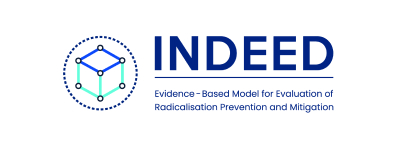
INDEED
Strengthening a comprehensive approach to preventing and counteracting radicalisation based on a universal evidence-based model for evaluation of radicalisation prevention and mitigation

INTEGRA
Integrated Community, Probation and Prison Services Radicalisation Prevention Approach

KOBAN
Identifying future capabilities for Community Policing
Related news

IN2PREV Final Conference highlights cross-sector collaboration for refugee inclusion and radicalisation prevention
Read More »
Standing united against hate: A national effort to prevent and tackle hate crime and hate speech in Portugal
Read More »
New IPS-led initiative unites efforts to protect religious communities, schools, and places of worship
Read More »
IPS contributes to shaping EU’s future agenda on radicalisation prevention at Brussels Town Hall meeting
Read More »
Advancing rehabilitation and countering contemporary extremist threats: IPS at the EU Knowledge Hub on Prevention of Radicalisation Thematic Panels
Read More »



